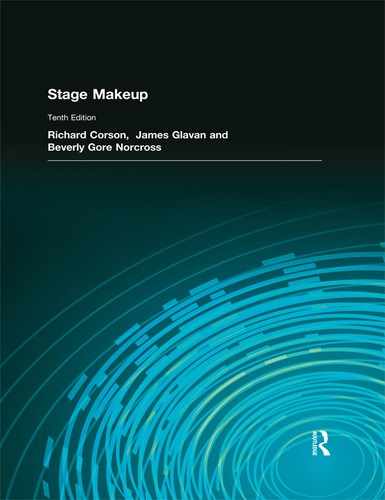Conclusion
Makeup is a fascinating art—at least, I find it so. You will agree or disagree with me, depending largely upon your recent experiences with it. At the moment I am interested only in those who have been favorably impressed and who intend to continue making up themselves and others for the stage.
I hesitate to fill these last pages with advice, for they will probably prove to be of value only as an exercise in writing. But there is one warning which I feel compelled to issue to all those who have stayed with me this long. Would that it be more widely heeded by makeup artists of today! It is simply this: You have not now learned to do makeup. You have only begun to learn—you will never finish. Don’t stop experimenting and practicing now, but continue always.
Makeup is not by any means a static art. It is far different today from what it was ten years ago. Ten years hence you may expect it to have gone through many more changes. Unless you progress as rapidly as the art itself, you will soon be in the position in which far too many makeup “artists” now find themselves—they are doing makeups for theater of 1890 and putting them in modern, realistic settings. The result, of course, is ludicrous.
Do not be afraid, then, to discard materials or techniques suggested by books and teachers of today in favor of something better which may appear tomorrow. By all means, don’t fail to experiment with every new material or idea which is even so much as rumored. Then, perhaps, you will be able not only to keep up with your art but—what is still better—to keep ahead of it.
From the first edition of Stage Makeup by Richard Corson, published in 1942 by F. S. Crofts & Co.
